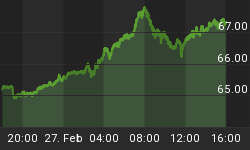The S&P 500, Dow and Nasdaq have all pared today’s earlier losses on multiple mainstream media reports that the Trump administration may delay by six months auto tariffs that were scheduled to be decided on in three days.
While the tariffs were being put through as in the interests of national security, the auto industry was strongly pushing back against a plan to slap tariffs as high as 25 percent on imported cars and car parts.
In a statement, the Alliance of Automobile Manufacturers said the tariff would essentially be a “massive tax on consumers”, and would end up lowering consumer demand to the point that it “could lead to the loss of as many as 700,000 American jobs.
While equities markets are celebratory in their fickle, short-sighted way, the auto industry isn’t exactly popping the champagne corks just yet.
The S&P 500 gained nearly 24 points, while the Dow gained 177 points (after having lost 190), and the Nasdaq gained nearly 96 points as of 2:47pm EST.
Speaking to the Detroit Free Press, Kristin Dziczek, VP of industry, labor and economics at the Center for Automotive Research in Ann Arbor, said the delay was a “mixed blessing” for the industry because the future still lacks clarity.
Dziczek said automakers “do not want these additional tariffs that will raise the costs of building vehicles in the United States. But this also extends a period of uncertainty, which makes it difficult for automakers to make investments and business decisions when you don’t know what the rules of the game are going to be”. Related: Wall Street Bears $1 Trillion Brunt Of Trade War
Europe was already preparing to retaliate over the auto tariffs, announcing it had compiled a list of $23 billion in U.S. goods that would be targeted for tariffs if Trump went through with the auto plan on May 18. The list of EU-targeted goods was not made public, with EU officials saying they would only reveal the list if and when Trump announced auto tariffs.
The unconfirmed reports of the delay of auto tariffs were also followed Wednesday by statements from Treasury Secretary Steven Mnuchin to the effect that Washington is working towards lifting 25-percent steel tariffs and 10-percent aluminum tariffs on Canada and Mexico imposed last year. That move would make the approval of a new north american trade agreement more feasible.
While the steel and aluminum tariffs may have given American steel and aluminum producers a leg up, the benefits in terms of “Making America Great Again” have been largely reversed by the fact that the same tariffs have raised costs for American manufacturers.
The auto industry has, for some time, been attempting to explain the idea of “globalization” to the Trump administration, which has invoked a Cold War-era article to threaten auto tariffs based on national security (in a time of peace).
Globalization tells us that American companies will suffer greatly because of tariffs precisely because industries and markets are so interconnected.
"There is no such thing as a U.S. vehicle," NPR quoted Ann Wilson of the Motor and Equipment Manufacturers Association as saying. "All vehicles that you purchase in the United States ... depend on a vibrant global marketplace."
By Tom Kool for Safehaven.com
More Top Reads From Safehaven.com:
















